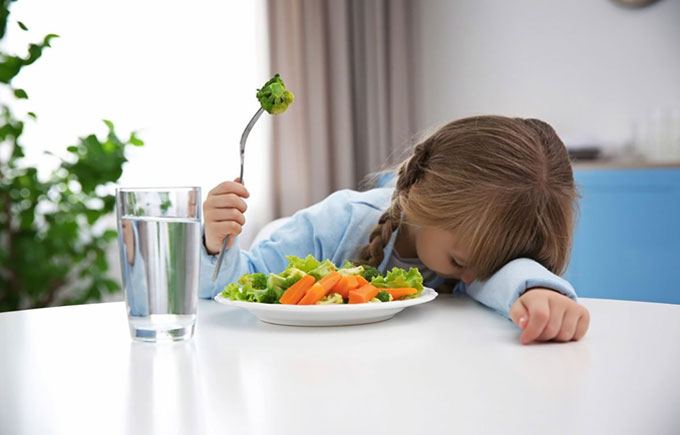ATS Dental Clinic Nutrition For Children
Nutrition and Your Child’s Teeth
What your child eats affects their teeth. Too many carbohydrates, sugar (for example, from cake, cookies, candies, milk, and other sugary foods and beverages), and starches (such as pretzels and potato chips) can cause tooth decay. How long carbohydrates remain on the teeth is the main culprit behind tooth decay.
The best thing you can do as a parent is to teach your child to make healthy food choices. Here are some tips:
Offer fruits and vegetables as a snack instead of carbohydrates. fruits and vegetables with a high volume of water, such as pears, melons, celery, and cucumbers, are best. Limit banana and raisin consumption, as these have concentrated sugar, or if you serve these fruits, try to brush your child's teeth right away after they are eaten.
- Choose cheese. Serve cheese with lunch or as a snack, especially cheddar, Monterey Jack, Swiss, and other aged cheeses, which help to trigger the flow of saliva.
- Saliva helps wash food particles away from teeth.
- Avoid sticky, chewy foods. Raisins, dried figs, granola bars, oatmeal or peanut butter cookies, jelly beans, caramel, honey, molasses, and syrup stick to teeth, making it hard for saliva to wash the sugar away. If your child consumes these types of products, have them brush their teeth right after eating.
- Serve sugary treats with meals, not as snacks. If you plan to give your child any sweets, give them as desserts just after the meal. There's usually more saliva in the mouth around mealtime, making it easier to wash food away from teeth. The mealtime beverage also helps wash away food particles on teeth.
- Get your children in the habit of eating as few snacks as possible. How often your child snacks is far more important than the how much they eat. Time between meals allows saliva to wash away food particles that bacteria would otherwise feast on. Frequent snacking, without brushing right after, provides constant fuel to feed bacteria, which leads to plaque buildup and tooth decay. Try to limit snacks as much as possible and to one or two a day.
- Avoid sugary foods that linger on the teeth. Lollipops, hard candies, cough drops, and mints all contribute to tooth decay because they continuously coat the teeth with sugar.
- Buy foods that are sugar-free or unsweetened.
- Never put your baby to bed with a bottle of milk, formula, juice, or soda.
- Offer your child plain water instead of juice or soda. Juices, sodas, and even milk contain sugar. Water does not harm the teeth and aids in washing away any food particles that may be clinging to teeth.
- Include good sources of calcium in your child's diet to build strong teeth. Good sources include milk, broccoli, and yogurt.




